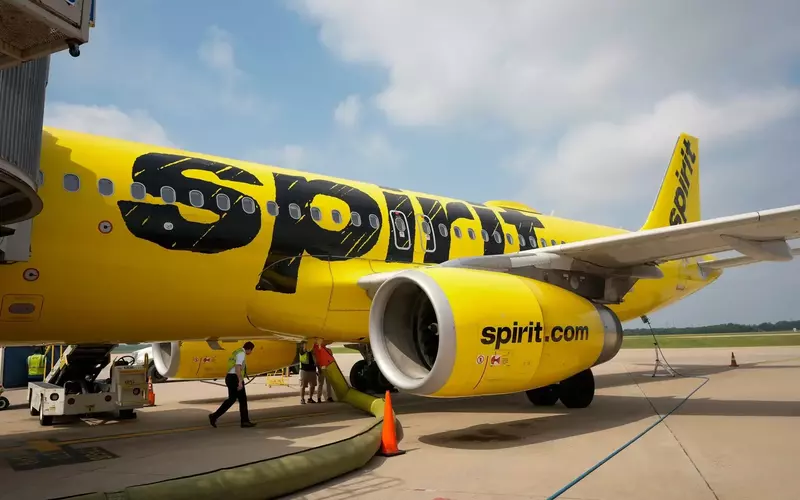A Spirit Airlines flight was raked with gunfire while attempting to land in Haiti on Monday, resulting in injuries to a flight attendant. The plane, which was hit multiple times, showed bullet holes in the overhead compartments and a door. The flight had originated from Fort Lauderdale, Florida, and was redirected to the Dominican Republic, where it landed without further incident. This event occurred just two weeks after Spirit Airlines temporarily halted flights to Haiti’s capital due to a similar incident involving a United Nations helicopter being shot at by gang members.
Other airlines, such as JetBlue Airways and Amerijet Cargo, have also been avoiding flights to Haiti, as indicated by flight tracking data. Spirit Airlines confirmed that flight 951, flying from Fort Lauderdale to Port-au-Prince, was diverted to Santiago, Dominican Republic, where it landed safely. Upon inspection, the aircraft showed damage from gunfire. A flight attendant suffered minor injuries and is receiving medical treatment, while no passengers were harmed. The aircraft has been removed from service, and alternative travel arrangements are being made for passengers and crew to return to Fort Lauderdale. Spirit Airlines emphasized the importance of safety, leading to the suspension of services to Port-au-Prince and Cap-Haitien until further notice.
This incident highlights ongoing violence in Haiti, marking the second recent event where an aircraft over the capital was targeted by gang gunfire. Last month, a United Nations helicopter was also fired upon and forced to return to the airport in Port-au-Prince. Haiti is currently experiencing political unrest, with a new prime minister, Alix Didier Fils-Aime, set to be sworn in after the removal of Prime Minister Garry Conille. The democratic process in Haiti is significantly hindered by gang violence. The transitional presidential council, formed in April, is responsible for selecting Haiti’s prime minister and Cabinet in hopes of stabilizing the nation. However, internal politics and disagreements have hampered the council, which has been at odds with Conille.
The U.S. State Department has highlighted the high concentration of gang attacks near the Toussaint Louverture International Airport in Port-au-Prince. Armed robberies and carjackings are common, often targeting lone drivers and women. Efforts by organizations like the Organization of American States to mediate the situation have been unsuccessful. The U.S. Department of State has advised against travel to Haiti due to ongoing civil unrest and violence. The advisory stresses the risks of kidnapping, mob violence, and armed robberies, with kidnapping being prevalent and U.S. citizens often held for ransom. The warning also notes the U.S. government’s limited ability to assist citizens in Haiti due to a lack of resources.
The situation in Haiti further deteriorated following Prime Minister Ariel Henry’s visit to Kenya to seek help from 1,000 police officers approved by the UN to control gang violence. Gang leader Jimmy “Barbecue” Cherizier has led violent actions, including freeing prisoners and attacking government buildings, aiming to prevent Henry’s return. Although police assistance from Kenya was secured, Henry was unable to return and eventually stepped down, leading to a government collapse.


























